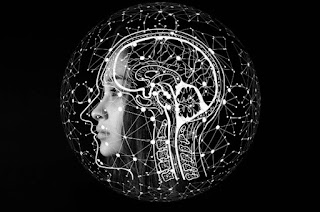Why
should I fear when evil days come,
when
wicked deceivers surround me ...
those who trust in their
wealth
and boast of their great riches?
No one can redeem the life of another
or give to God a ransom for them ...
the ransom for a life
is costly,
no payment is ever enough ...
so that they should live
on forever
and not see decay.
For all can see that the wise die,
that the foolish and the senseless also perish,
leaving
their wealth to others.
Their tombs will remain their houses forever,
their
dwellings for endless generations,
though
they had named lands after themselves.
People, despite their wealth, do not endure;
they are like the beasts that perish.
This is the fate of those who trust in themselves,
and of their followers, who approve their sayings.
They are like sheep and are
destined to die;
death will be their shepherd
(but the upright will prevail over them in the morning).
Their forms will decay in the grave,
far from their princely mansions.
he will surely take me to himself.
Do not be overawed when others grow
rich,
when the splendor of their houses increases;
for they will take
nothing with them when they die,
their splendor will not descend with them.
Though while they live they count
themselves blessed ...
and people praise you when you prosper ...
they will join those
who have gone before them,
who will never again see the light of life.
People who have wealth but lack understanding
are like the beasts that perish.



.png)










